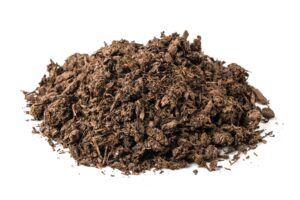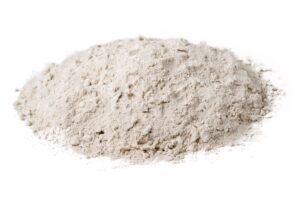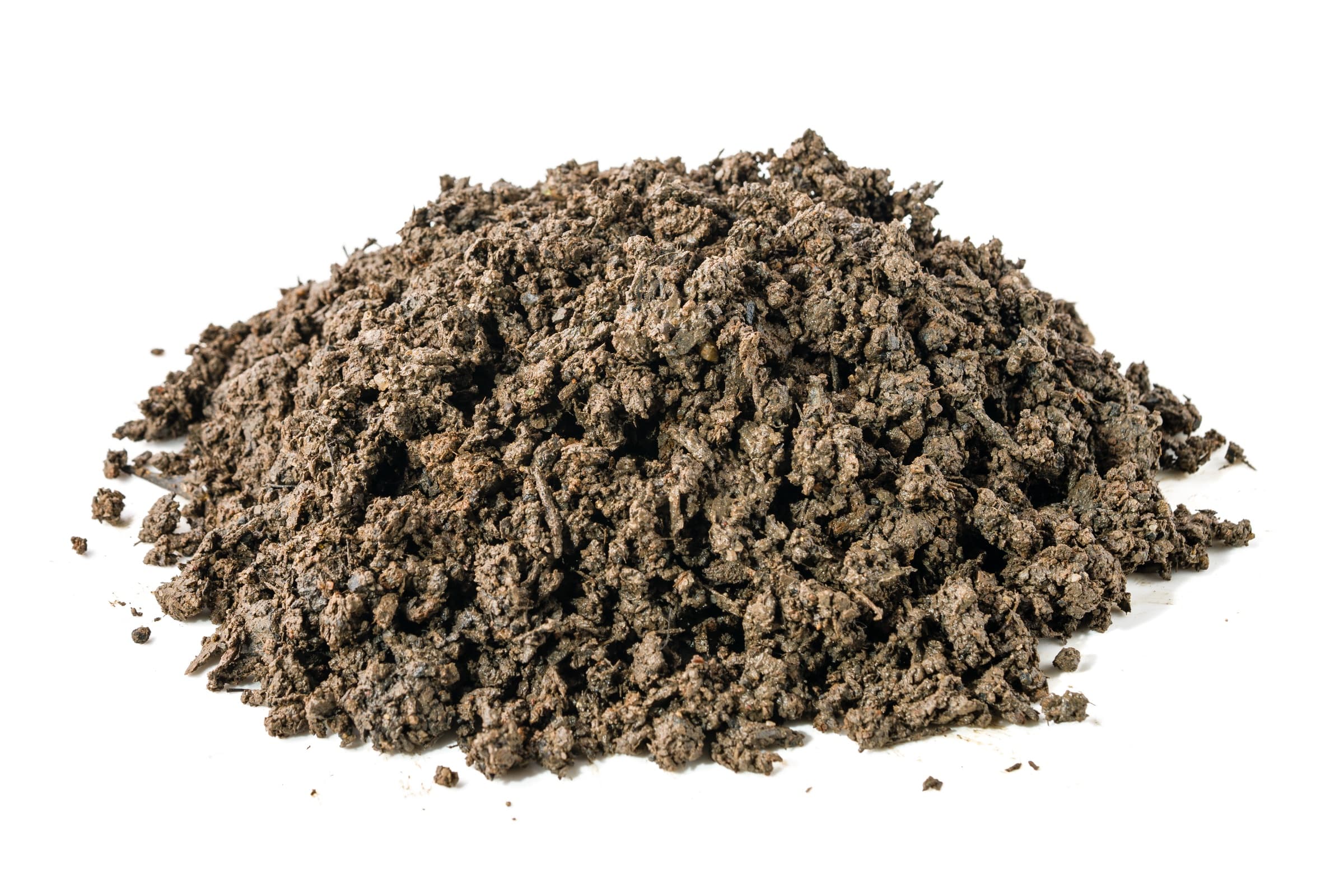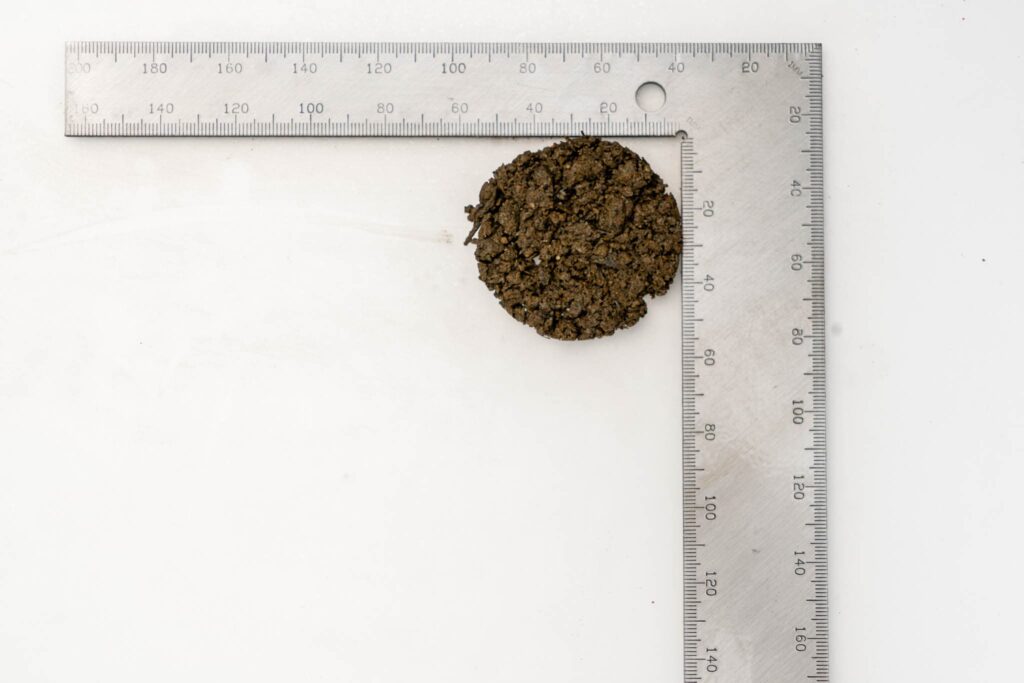Organic soil improver is high in organic matter, and adds nutrients to existing soil by accelerating and enhancing plant growth by allowing the plant’s root system to move more freely and absorb more nutrients. Composed of composted green waste and fibrous material, it also improves the soils ability to retain moisture, while minimising temperature fluctuation of soil.
Applications
Mixing into Existing Soil: Organic soil improvers can be tilled or mixed into existing soil to improve its properties and enhance plant growth.
Top Dressing: Adding a layer of organic material on the soil surface can gradually improve soil structure and encourage microbial activity.
Amending Planting Holes: When planting new plants or trees, mixing organic soil improvers into the backfill can create a nutrient-rich environment for root establishment.
Mulching: Applying a layer of organic mulch can improve soil moisture retention, prevent weed growth, and provide a slow-release source of nutrients as it breaks down.
Benefits
Improved Soil Structure: Organic soil improvers help create better soil structure, enhancing water drainage, aeration, and root penetration.
Enhanced Water Retention: Amended soils have better water-holding capacity, reducing the need for frequent irrigation and making plants more resilient to drought.
Nutrient Enrichment: Organic soil improvers contribute essential nutrients to the soil as they decompose, providing a natural and slow-release source of nutrition for plants.
Promotion of Microbial Activity: Organic matter encourages the growth of beneficial soil microorganisms, which assist in nutrient cycling and breaking down organic materials.
Reduced Soil Erosion: Soil amended with organic matter is better able to resist erosion and minimize the impact of rainfall.
pH Regulation: Some organic soil improvers can help buffer and regulate soil pH, creating a more suitable environment for plants with specific pH requirements.
Increased Organic Matter: Regular use of organic soil improvers can lead to a buildup of organic matter in the soil, improving its long-term fertility and health.
Carbon Sequestration: Organic matter added to the soil captures and stores carbon, contributing to efforts to mitigate climate change.
Healthier Plants: Improved soil conditions translate to healthier plants with stronger root systems, better nutrient uptake, and increased resistance to pests and diseases.
Reduced Need for Chemical Fertilizers: By improving soil fertility naturally, organic soil improvers can help reduce reliance on synthetic fertilizers.
Sustainable Practices: Incorporating organic materials into the soil supports sustainable gardening and farming practices, as it reduces waste and promotes ecosystem health.
Improved Soil for Wildlife: Healthy soil ecosystems benefit a range of organisms, from beneficial insects to earthworms, contributing to overall biodiversity.
When using organic soil improvers, it’s important to choose materials that are suitable for your specific soil type, plant needs, and environmental conditions. Conducting soil tests can help determine the appropriate type and amount of organic amendment to achieve the desired benefits.
Products
More like this

Mushroom Compost
Mushroom compost, also known as mushroom soil or mushroom substrate, is a type of organic material that’s a byproduct of mushroom cultivation. It’s composed of various organic materials that have been used to grow mushrooms,...

Gypsum
Soilworx Gypsum, a versatile soil amendment that enhances soil structure and fertility. Gypsum, also known as calcium sulfate dihydrate, improves soil aeration and drainage while promoting root growth and nutrient uptake for plants.

Case
studies

Normark
Established in 1977, Normark are a second generation family business specialising in landscape design and construction across Melbourne. "From inner-city Melbourne courtyards to large commercial open spaces, Normark will deliver."

Normark
Established in 1977, Normark are a second generation family business specialising in landscape design and construction across Melbourne. "From inner-city Melbourne courtyards to large commercial open spaces, Normark will deliver."

Normark
Established in 1977, Normark are a second generation family business specialising in landscape design and construction across Melbourne. "From inner-city Melbourne courtyards to large commercial open spaces, Normark will deliver."

Normark
Established in 1977, Normark are a second generation family business specialising in landscape design and construction across Melbourne. "From inner-city Melbourne courtyards to large commercial open spaces, Normark will deliver."

Normark
Established in 1977, Normark are a second generation family business specialising in landscape design and construction across Melbourne. "From inner-city Melbourne courtyards to large commercial open spaces, Normark will deliver."



